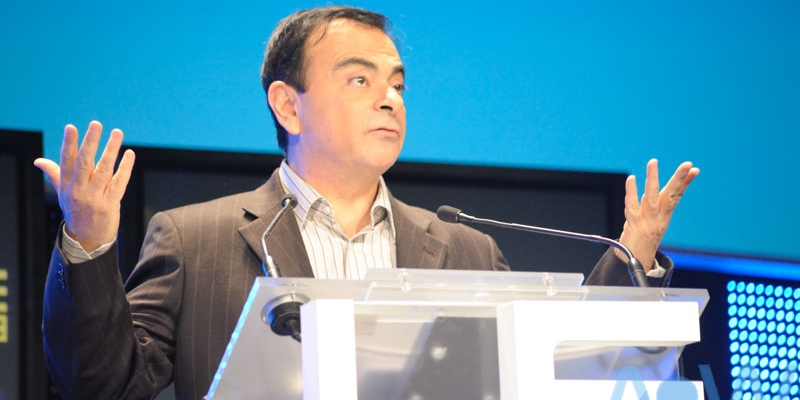
Reading a Bloomberg expose on the dramatic downfall of one of the most powerful men in the automotive industry, Renault-Nissan chairman Carlos Ghosn, I was struck by a thought: How could such a brilliant leader be so clueless? This is how.
ICYMI, twenty years ago Ghosn engineered an unlikely alliance between two flagging automakers, Japan’s Nissan and France’s Renault. Not without some issues, the creative tie-up helped both companies and has held, albeit tenuously, to this day. And Ghosn became CEO and then chairman of both companies, as well as the alliance.
The Bloomberg piece characterizes Ghosn as “a caricature of the borderless Davos Man.” Born in Brazil, raised in Beirut and educated in Paris, he somehow ended up running “an iconic company in insular Japan.” The high-flying executive had homes in five countries but spent most of his time at 30,000 feet.
At some point Ghosn decided it would be best to actually merge the two companies and give the combined entity more market power. He was probably right about that. But the idea rankled some Nissan executives, notably CEO Hiroto Saikawa.
A long-time Ghosn lieutenant, Saikawa turned against his mentor, fearing that Nissan would completely lose its identity in the merger and, perhaps more important, that he would lose power in a global conglomerate that would probably be headquartered in France.
At the same time another one of Ghosn’s trusted insiders, Hari Nada – who oversaw Ghosn’s affairs – began to question some of his boss’s personal expenses, excesses and housing arrangements, which were increasingly intertwined with Nissan’s corporate finances. Nada turned whistleblower, which is how the Japanese authorities got involved.
Long story short, Ghosn was completely blindsided by the ensuing palace coupe that saw him arrested and stripped of his chairmanship. He now awaits trial by Japanese prosecutors with practically a 100% conviction rate. The precariousness of his situation never occurred to the globe-trotting executive who had become increasingly detached from the realities unfolding far beneath him.
In a recent CNBC interview, Ghosn’s wife called him a victim of conspiracy by Nissan to take him down. Japanese prosecutors say he misappropriated company funds and assets. Actually, both appear to be true — their confluence led to this result. C’est la vie.
Which brings us to some interesting lessons.
A top leader might get away with some entitled excesses or withstand some political enemies, but not both. If powerful people want to take you down, all they really need is for you to leave them an opening and a means with which to do it. Sooner or later, they will. I’ve seen it time and again. If you inspire hatred or jealousy, better stay squeaky clean.
“He never saw it coming.” I often speak of visionary leaders who can’t see what’s happening right under their noses. That would be Ghosn. Do I even have to say it? Never let success go to your head. The moment you think you’re above the fray, look out below. Stay grounded.
They say you should keep your friends close and your enemies closer. Sometimes it’s hard to tell the difference. And if you’re not paying attention, one can easily morph into the other. Best to keep both friends and enemies close. Better still, stay hands-on. As Andy Grove famously said, “Only the paranoid survive.” So true.
When you’re on top of the world and it looks like everything is going your way, that’s when you need to stop and take a look around. Remember the second law of thermodynamics – the universe always tends toward increasing chaos. In human terms, that just means life has a funny way of reminding you that you’re not really in charge.
Image credit Herve Corcia / Flickr